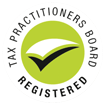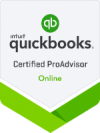Are your SMSF tax returns lodged correctly? Make sure you’re not paying too much or too little tax
Every Self-Managed Superannuation Fund (SMSF) requires its own tax return lodged at the ATO, every year. (This is in addition to your annual individual tax return.)
Be 100% sure your SMSF is ATO-compliant, audited correctly and not causing a big tax assessment that will sneak up on you later
Australian taxation law is among the most complex in the world, and SMSF tax is one of the most difficult areas. Some taxpayers go it alone, managing their SMSF and all their tax returns without any expert help – and they often pay for it later when an unexpected ATO assessment hits them with thousands in taxes owing. An SMSF tax problem can erase the valuable gains made within a super fund. That could be a disaster for you, as an investor and as a future retiree.
Etax Local’s SMSF tax return team makes sure your Self-Managed Super Fund is ATO-compliant and their goal is to minimise your taxes, so you have more to retire on later.
The tax agent team at Etax Local have over 35 years’ experience behind them, with specialists in the team for handling every sort of tax issue.
Your future depends on your SMSF. Don’t leave anything to chance – talk to an expert and rest easy knowing your SMSF taxes are in order.
Get in touch
Let Etax Local make your SMSF tax return accurate and worry-free
Request a quote – or advice – using the get a quote button below. Alternatively, call for a chat today on: 1300 174 689.
Want to know more about SMSF taxes? Read on…

SMSF Income
Your SMSF is treated almost like a person by the ATO. When your SMSF earns income, it has to pay taxes.
Most SMSF income is taxed at a low rate of 15%. This includes employer contributions, salary sacrifice, interest, dividends, rent and net capital gains. There are some complicated exceptions to the rules but in general these sorts of income help create a ‘tax safe’ investment in your SMSF.
However, some types of SMSF contributions and income are taxed at a high rate – in some instances, up to 46.5% of the income may go to the ATO. This can include earnings from investments or lending with parties related to the fund, income from a discretionary trust or pension fund, plus any other sort of income or contribution that the ATO considers “not at arm’s length”.[/toggle]
SMSF Annual Return (also known as SMSF Tax Return or SMSF Return)
You must lodge an SMSF Annual Return every year. An SMSF Return reports income, contributions, levies and regulatory information to the ATO – all of this is required by law.
When is your SMSF Tax Return due?
- Returns prepared by a tax agent (this is more than 80% of funds) the deadlines are variable – your tax agent will provide details and can arrange extensions or instalments with the ATO.
- New registrants, 28 February.
- For ‘not new’ registrants who self-prepare the deadline is 31 October.
SMSF Annual Returns are prepared AFTER your annual SMSF Audit is complete.
If you don’t lodge an SMSF Annual Return the ATO may charge penalties. It’s also possible for them to reduce the tax concessions available to your super. That’s why it is a good idea to appoint one reliable tax agent to handle your SMSF Audit and your SMSF Return.
SMSF Audit
The trustee of every SMSF must appoint an independent SMSF auditor to audit your SMSF every year.
SMSF Deductions
A complying SMSF can claim deductions in its tax return.
Expenses like:
- SMSF auditing fees,
- the supervisory levy,
- some types of insurance and
- other costs that you incur in order for your super fund to produce income
…are deductible from your SMSF’s assessable income, and this means your SMSF taxes can be reduced.
An expert SMSF tax agent can help you identify the qualifying expenses and claim them to the ATO. This is not an area where you can use ‘creative accounting’; the ATO rules are specific and strictly enforced.
GST for Your SMSF
Quoting the ATO, “Your SMSF must register for GST if it makes supplies, other than input-taxed supplies, that exceed the GST turnover of $75,000.”
Most Self-Managed Super Funds have very low, or zero, ‘non-input-taxed supplies’. That’s why most SMSFs do not need to register for GST.
You can register your SMSF for GST voluntarily, but you should consider the added cost of record-keeping and administration this will create.
It’s a good idea to let a tax agent determine whether your SMSF needs GST registration. If it did need to be registered and pay GST, falling behind with the ATO could become a very costly surprise.
The ATO’s SMSF return form includes sixteen pages of detailed questions about your SMSF finances.
It is critical to get this right, or your SMSF could be taxed at a costly, high rate by the ATO.
A tax agent can handle this electronically, minimise delays, plus manage your SMSF Audit and any extensions or instalments you may need to arrange.
 Tax Agent
Tax Agent



